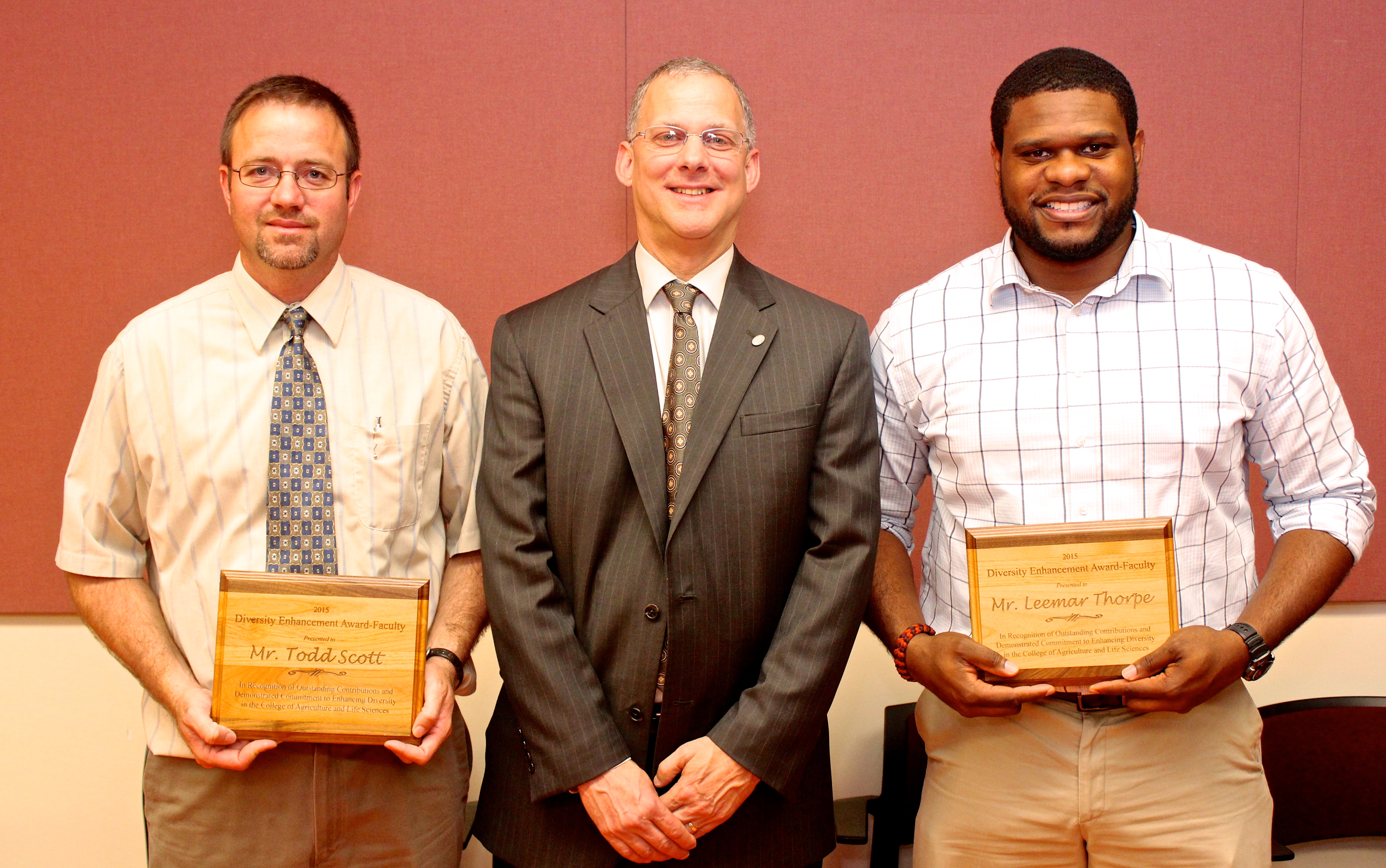College of Agriculture and Life Sciences honors those who promote inclusion and diversity

Three individuals from the Virginia Tech College of Agriculture and Life Sciences and Virginia Cooperative Extension were recently recognized with the Diversity Enhancement Award for their commitment to promoting diversity within the college and the commonwealth.
The College Diversity Council honored Leemar Thorpe, project associate with the Virginia Tech Post-Baccalaureate Research and Education Program and the Virginia Tech Initiative to Maximize Student Development Program; Todd Scott, an Extension agent in Campbell County; and John Benner, an Extension agent in Augusta County.
“We are extremely grateful for the work these individuals have done to support our efforts to create more inclusive communities,” said Dean Alan Grant, a member of the council. All three recipients of the award received a letter of commendation, a plaque, and a monetary award.
The College Diversity Council presents the annual awards to students, faculty, and staff who have been selfless ambassadors of diversity initiatives within the college and the university.
In his role, Thorpe works to maintain and develop diversity within the college. The Virginia Tech Initiative to Maximize Student Development Program provides individualized mentoring, coursework, the development of strong laboratory research skills, and a supportive learning environment to post-baccalaureate students from historically underrepresented groups interested in pursuing a Ph.D. and a research career in biomedical and behavioral sciences and engineering.
The Initiative for Maximizing Student Development program was created to increase the number of historically underrepresented individuals in biomedical, behavioral sciences, and engineering programs.
“Leemar is a role model and his leadership exemplifies how a leader should function to assist a community and make change,” his nominator said.
Scott and Benner worked together to create a pesticide applicator-training program for Spanish-speaking landscapers. While English is a second language for many employees in the landscaping industry in Virginia, there have been limited resources for them in Spanish.
The team worked with local landscaping communities to translate a safety training program into Spanish. Eighteen Hispanic workers underwent training that would allow them to work with pesticides in a manner that is safe for the workers and the general public.
The pair's “educational innovation and responsiveness to the landscape business community is commendable,” their nominator said.




